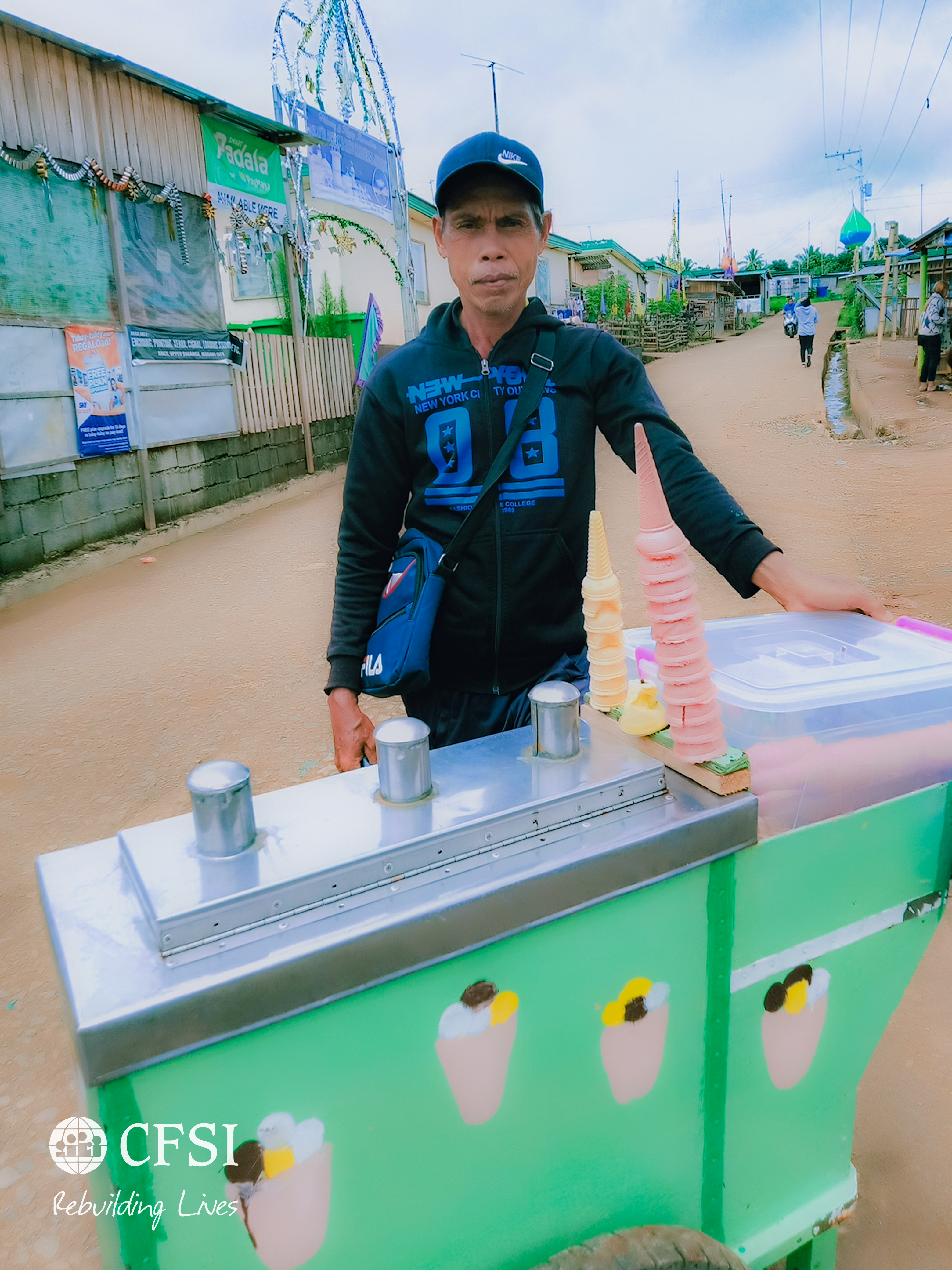This article was written by Omarjah M. Moh’d Yasser, a field assistant of CFSI under the Marawi Recovery Project (MRP).
It has been three years since the five-month-long armed-conflict happened in the Islamic City of Marawi, Philippines. Many have lost their homes and were forced to evacuate to save themselves from the destruction of the city.
One of the evacuees was 52-year-old Ansari Menor who used to live in Brgy. Moncado Kadingilan in Marawi City. He is married to Maimona and is blessed with two children. Before the siege, Ansari used to be an ice cream cart vendor who peddles every day to the nearest school. This was his main source of income to support the family.
When the siege erupted in 2017, Ansari’s family fled to Sta. Elena Evacuation Center in Iligan City, Mindanao. His ice cream cart, which is the family’s only source of income, was left at home and destroyed from the war.
While in the evacuation center, Ansari and his family solely depended on the relief goods provided by the government and humanitarian organizations. They were uncertain of the future, knowing that they have nothing to come back to. It was hard for them to bear the situation, especially for Maimona who was diagnosed with mental depression at that time.
After the ‘liberation’ of Marawi and nearly a year of staying in the evacuation center, Ansari’s family was among those transferred in a temporary shelter known as the Marawi Tent City. When they moved there, water and food were scarce as well as blankets and medicines.
Life may be difficult at the tent city but Ansari was ready to rebuild his family’s life. He found aid from the Community and Family Services International (CFSI) through the Marawi Recovery Project. Ansari was among the Internally Displaced Persons (IDPs) provided with livelihood, protection, and psychosocial support.
Ansari proposed an ice cream cart to CFSI for his livelihood support. He started selling ice cream inside the tent city and was slowly earning enough for his family. On the other hand, his wife is given medical assistance and psychosocial services support for her mental condition.

Ansari, a Marawi Siege survivor, regained his ice cream business back through the help of CFSI’s Marawi Recovery Project. Now, he was able to expand his business by owning five ice cream carts and hiring three more vendors.
After almost a year living in the tent city, Ansari’s family was one of the IDP families who were given a new home at Boganga Transitory Shelter through the local government. He continued selling ice cream in the new community and was able to expand his business.
Now, Ansari owns five ice cream carts. He hired three more vendors to operate in other communities and increase sales. One of the carts is also for rent to help his neighbors have short-term income.
“Nagpapasalamat ako sa CFSI dahil naibalik sa akin ang dati kong kabuhayan. Ngayon, kumikita na ulit ako ng pera para sa pamilya ko. Salamat, CFSI! (I am grateful to CFSI because I was able to regain my livelihood. Now, I’m earning money to support my family. Thanks, CFSI!),” Ansari shared with a smile. #
—
Ansari is one of the *3,595 Internally Displaced Persons (IDPs) provided with urban-based livelihood support through CFSI’s Marawi Recovery Project. CFSI, supported by the Australian Government, implements the MRP since 2017 to promote protection, psychosocial, and livelihood recovery of at least 6,500 households affected by the Marawi crisis.
*as of September 2020

